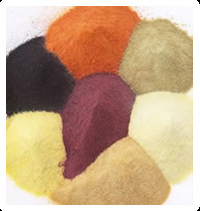Lemongrass Purchase & Information

Alternative Names
British Indian Lemongrass, Ceylon Citronella Grass, Capim-Cidrao, Citronnelle des Indes, Citronnelle de Ceylan, Citronnelle de Madagascar, Citronnelle, Cochin Lemongrass, Citronella and Citronnelle de Java, East Indian Lemongrass, Fever Grass, Guatemala Lemongrass, Hierba de Limón, Herbe Citron, Jonc Odorant,Lemon Grass, Madagascar Lemongrass, Verveine Indienne, West Indian Lemongrass CAUTION: Please refer to separate listing for Lemon Eucalyptus, Citronella Oil, Stone Root
Scientific Name
Cymbopogon Citratus
Why Do People Use Lemongrass?
The oral preparations of Cymbopogon citratus (Lemongrass), like lemongrass powder, are used for a number of purposes that include for stomachache, treating gastrointestinal spasms, convulsions, hypertension, vomiting, neuralgia and pain, cough, fever, rheumatism, exhaustion and common cold. In addition, it is also used orally as a mild astringent and as an antiseptic.
Topically - Lemongrass powder and its essential oil is helpful when used for headache, abdominal pain, stomachache and for musculoskeletal pains.
For Inhalation - The essential oil of lemongrass is commonly utilized as aromatherapy for musculoskeletal pain.
In various commercial food and beverages items, lemongrass is used as a flavoring agent.
In manufacturing various soaps and cosmetics products, lemongrass is used as a fragrance agent. Lemongrass is also effective in synthesizing natural citral and vitamin A.
Is It Safe To Use?
Likely Safe - Oral usage of lemongrass in food items is considered safe. Lemongrass grass has acquired Generally Recognized as Safe (GRAS) status in the United States. However topical, appropriate and short-term (up to two weeks) usage of lemongrass is also consider safe. Essential oil of lemongrass is another important constituent which is used by inhalation as a component of aromatherapy.
Likely Unsafe in Pregnancy - Oral utilization of lemongrass should be avoided during pregnancy because it may alter the menstrual flow and has uterine stimulating effects.
Lemongrass in Breastfeeding Females - Breastfeeding females should avoid lemongrass because there is lack of authentic and reliable information available about its safety in this condition.
How Effective Is Lemongrass?
In order to rate the effectiveness of lemongrass, there is lack of authentic and reliable information available.
How Lemongrass Works?
The most effective parts of Cymbopogon citratus are the oil and its leaves. The lemongrass leaves are normally utilized to add lemon taste in herbal teas. The lemongrass essential oil further consists of limonene, geraniol, alpha-terpineole and alpha-pinene that have antimicrobial effects. The oil has in vitro antimicrobial reactions against combination of common gram negative and common gram positive organisms including yeast Candida albicans, Klebsiella pneumoniae, Serratia marcescens Staphylococcus aureus, Pseudomonas aeruginosa, Escherichia coli, Enterococcus faecalis, Acinetobacter calcoacetica and Salmonella species. Lemongrass oil also contains citral 65-85%. Citral is a central nervous system (CNS) depressant. Lemongrass is also thought to have anti-oxidant, antipyretic and analgesic properties alongside menstrual and uterine flow enhancing impacts.
What Are The Side Effects /Adverse Reactions of Lemongrass?
Orally - Only one case has been reported where a child mistakenly ate lemongrass essential oil when it was used as an insect repellant. The child, afterwards, developed poisoning.
Topically - Very few allergic reactions are reported when lemongrass oil is applied to the skin.
By inhalation - Only two cases are reported of toxic alveolitis reactions related with unknown dosage of lemongrass oil.
How Lemongrass Interacts With Other Herbs and Supplements?
There is no known interaction between lemongrass powder and various supplements & herbs.
How Lemongrass Interacts With Drugs?
Cymbopogon citratus doesn’t seem to interact with any drug.
How Lemongrass Interacts With Foods?
Lemongrass powder has no known interaction with any food item.
How Lemongrass Interacts With Lab Tests?
Amylase and Bilirubin - Oral consumption of Lemongrass may lead to elevations in amylase levels and serum bilirubin (direct) levels.
How Lemongrass Interacts With Diseases and Conditions?
No disease or condition seems to interact with lemongrass powder.
What Should Be the Dose/Administration of Lemongrass?
Oral - Generally, lemongrass is used as an herbal tea. This tea is prepared by mix 6 oz. of the powder to make 1-2 cups of the tea.
Topical - There is no topical dosage of lemongrass.
Comments
Don’t mix citronella oil (Cymbopogon nardus) with lemongrass.
General Certificate of Analysis (COA)
Specification sheet links below are a standard copy of the COA less the batch or lot number and manufactures dates. Specification sheet can be dated and should only be considered as a general information. Please contact and request an up to date COA if needed for specific updated information before placing order by filling out the contact form with product name and SKU number. If ordering quantities of twenty five kilos or more contact for availability.
